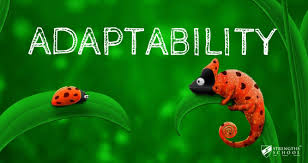In the world of martial arts, victory is not merely achieved through physical prowess alone; it requires a strategic mind capable of navigating the complexities of combat. Just as Sun Tzu’s “The Art of War” offers timeless wisdom for military commanders, its principles can be applied to the training and practice of martial arts, guiding practitioners on their path to mastery.
At the heart of Sun Tzu’s philosophy lies the concept of knowing oneself and knowing one’s enemy. In martial arts training, this translates to a deep understanding of one’s strengths, weaknesses, and limitations, as well as those of one’s opponent. By honing their skills and developing a keen awareness of their own abilities, martial artists can better anticipate and counter their adversaries’ moves, gaining a crucial advantage in combat.
Central to Sun Tzu’s teachings is the idea of adaptability – the ability to fluidly adjust one’s tactics in response to changing circumstances. In martial arts, this principle is exemplified by the concept of “flow” – the seamless transition between offensive and defensive techniques, the ability to read and react to an opponent’s movements in real-time. Through rigorous training and practice, martial artists cultivate this fluidity, enabling them to stay one step ahead of their opponents and dictate the course of the fight.

Sun Tzu also emphasizes the importance of deception and misdirection in warfare. In martial arts, this manifests as the strategic use of feints, fakes, and footwork to keep opponents off balance and create openings for attack. By disguising their intentions and luring opponents into traps, martial artists can control the tempo of the fight and exploit vulnerabilities in their adversaries’ defenses.
Furthermore, Sun Tzu stresses the significance of positioning and terrain in battle. In martial arts training, this translates to an understanding of distance, angles, and leverage – the ability to maneuver and control space to one’s advantage. By mastering the nuances of footwork and body positioning, martial artists can effectively dictate the flow of the fight, forcing opponents into unfavorable positions and capitalizing on openings with precision strikes and submissions.
Moreover, Sun Tzu advocates for the importance of morale and discipline in warfare. In martial arts training, this underscores the need for mental fortitude and emotional resilience – the ability to stay focused and composed in the heat of combat, regardless of the challenges or setbacks faced. Through meditation, visualization, and other mindfulness techniques, martial artists cultivate a state of mental clarity and inner calm, enabling them to perform at their peak under pressure.
In conclusion, the principles espoused in Sun Tzu’s “The Art of War” offer invaluable insights for martial artists seeking to elevate their skills to the highest level. By applying these timeless teachings to their training and practice, practitioners can sharpen their strategic acumen, enhance their combat effectiveness, and ultimately, achieve mastery in the art of war – both on and off the battlefield.



